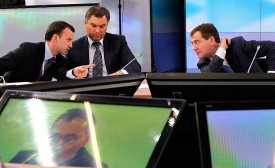social media
From a digital perspective, 2016 has arguably been the year of emotions running high [...] The fact that people are emotional beings is hardly a secret, of course, especially when tragedies or high-stakes political affairs are involved. What digital platforms have brought to the table is a rather new form of commodification of human emotions as instruments of social exchange.

As digital communications become more emotionally-charged, digital emotional intelligence is crucial.
Digital Diplomacy is the new radio. Ever since politicians figured out that they could speak directly to ‘the masses’, we have had the phenomenon of public diplomacy. It became possible, via radio, to speak directly to people without having to go through official government channels. In the early 20th century, the Nazis and the Bolsheviks effectively used the radio to stoke revolutions in neighbouring countries.
Tweets, of course, do not speak. They are lines, no more than 140 characters, broadcast to the world, lacking the context of a 40-page policy paper or even a full paragraph tossed off during a backyard barbecue. And the utterings of the next president often prompt a slew of questions about how they relate to policy or international diplomacy and whether they promote falsehoods or increase global instability.
What's on Weibo, an independent blog that reports on social and cultural trends in China, recently released a list of the top five embassies with the largest number of followers on Sina Weibo, China's most influential micro-blogging platform. The Israeli embassy tops the list with over 1.91 million followers, which are 800,000 more than the Canadian embassy, the second on the list, and almost double that of the US embassy, which sits at No. 3.







